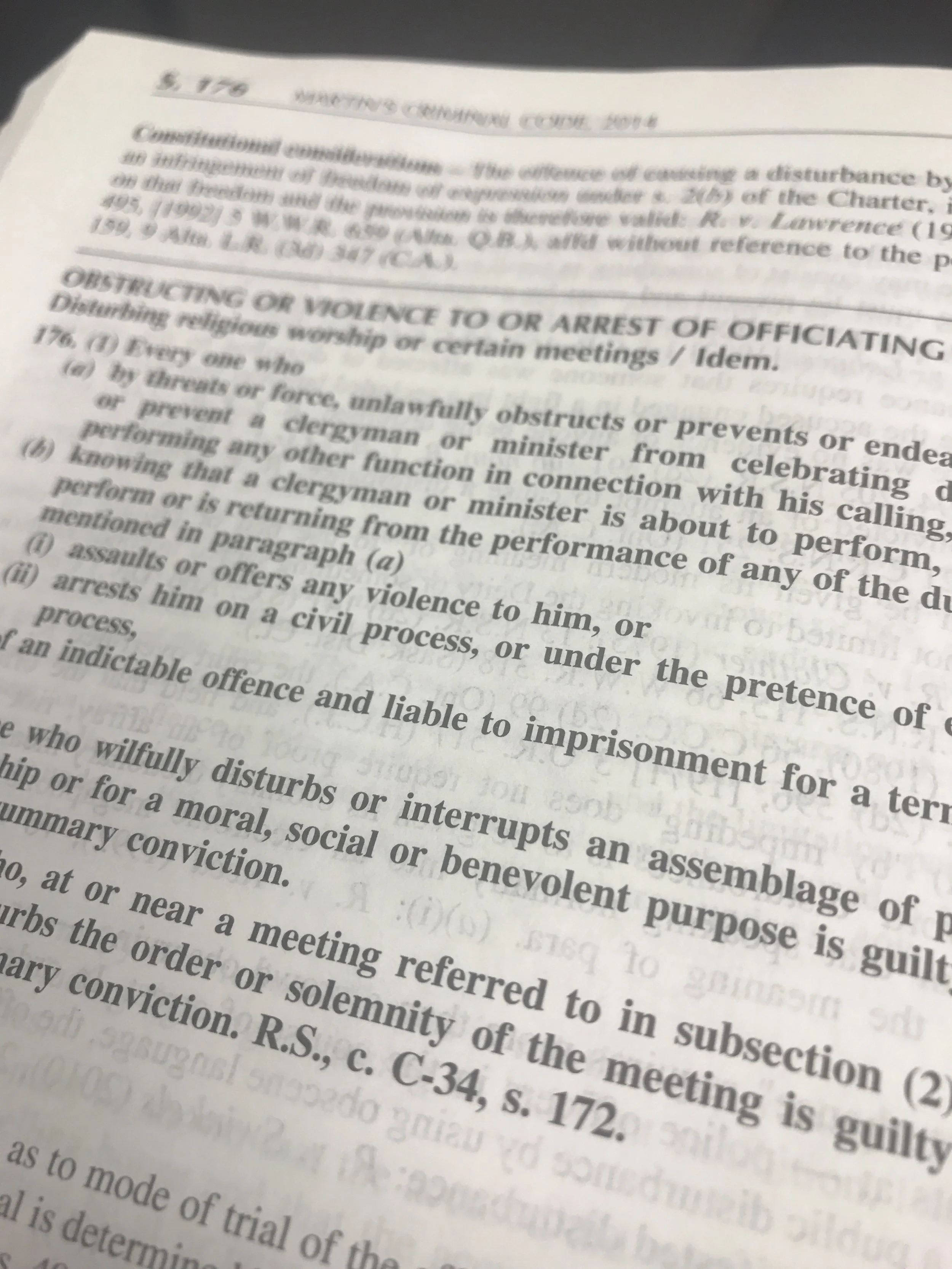On November 10, 2017, the Government of Manitoba passed The Medical Assistance in Dying (Protection for Health Professionals and Others) Act. The legislation specifically protects the rights of those who refuse to aid in the provision of medical assistance in dying on the basis of his or her personal convictions.
Court of Appeal rules on religious accomodation in Ontario schools
Justice Committee retains Criminal Code protections for religious expression and association
Protecting fundamental freedoms should never be seen as “obsolete”
Praying for the Church
“International law jealously guards religious autonomy”: CLF at the Supreme Court of Canada
"The right to autonomy of religious communities is a fundamental principle recognized in international law. Canada has agreed to uphold this principle in its international commitments. The present case demonstrates a need and presents an opportunity to expressly affirm religious autonomy in Canadian jurisprudence."
SUPREME COURT OF CANADA CLARIFIES SCOPE OF RELIGIOUS FREEDOM
Yesterday, the Supreme Court of Canada reaffirmed that government actors have a duty to specifically consider religious freedom concerns when raised by claimants in its Ktunaxa Nation v. British Columbia decision. This historic case – the first Indigenous religious freedom claim to be heard by the Supreme Court - raised questions about the scope of religious freedom, and the means by which religious communities can practise and manifest their faith. Christian Legal Fellowship (CLF) and The Evangelical Fellowship of Canada (EFC) jointly intervened in the case.
CLF urges Parliament to retain Criminal Code protections for religious expression and association
"[C]itizens must be free to meet, worship, and collectively express themselves without fear of being silenced by reprisal or intimidation. Canada’s historical reality regarding the oppression of religious and other minority groups – some of which has been effectively prosecuted under section 176 – must not be forgotten. The Supreme Court of Canada’s recognition that section 176 protects the public interest remains a salient one. The inclusion of section 176 in the Criminal Code demonstrates Canada’s ongoing societal commitment to protect the fundamental freedoms of religious expression and association."
CLF urges Council of Canadian Academies to consider Canada's most vulnerable and broader societal commitments in its review of euthanasia expansion
CLF Files Intervener Factum in SCC Religious Autonomy Appeal
CLF Files Intervener Factum to SCC in Joint Trinity Western Appeals
CLF Granted Leave to Intervene at SCC in Religious Autonomy Case
CLF Applies to Intervene at SCC in Religious Autonomy Case
CLF Granted Intervener Status Before the SCC in Joint TWU Appeals
Happy Canada 150!
Report on the 2017 Christian Legal Institute
CLF intervening at the Ontario Court of Appeal in support of parental rights in education
Coalition Forms in Physicians’ Conscience Case
Valour Steeped in Faith
A Dialogue on Religious Lawyering
“So three lawyers, a Catholic, an Evangelical, and a Mormon are sitting in a lounge over lunch when…” sounds like the start of a bad joke, but it’s exactly what happened at the University of Alberta as students, faculty, and local practitioners gathered to discuss the role of religion in the legal profession.










